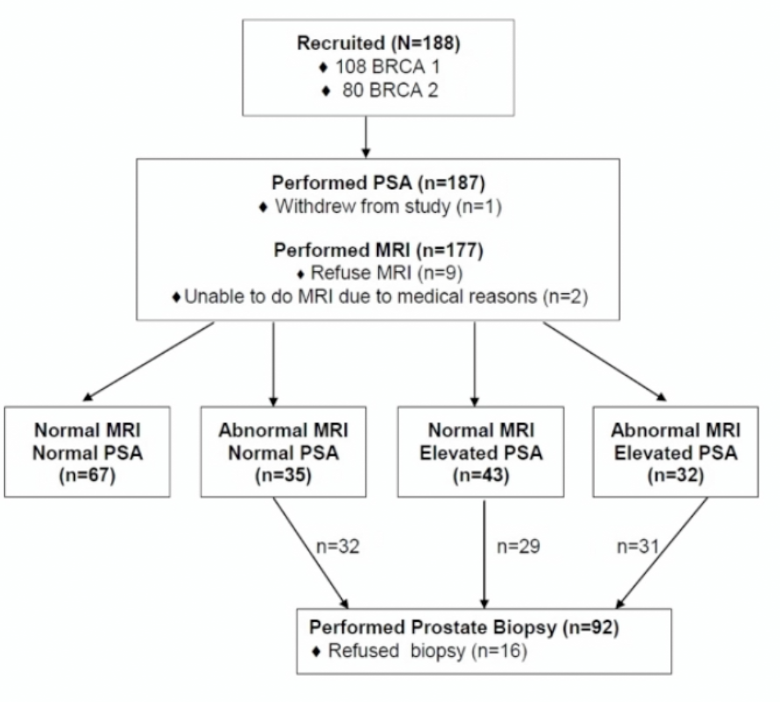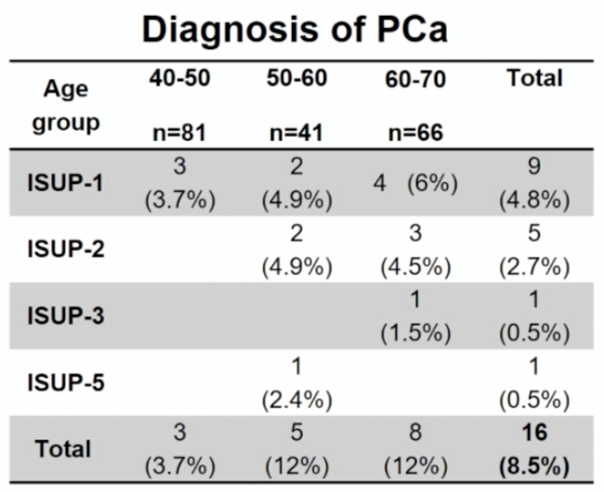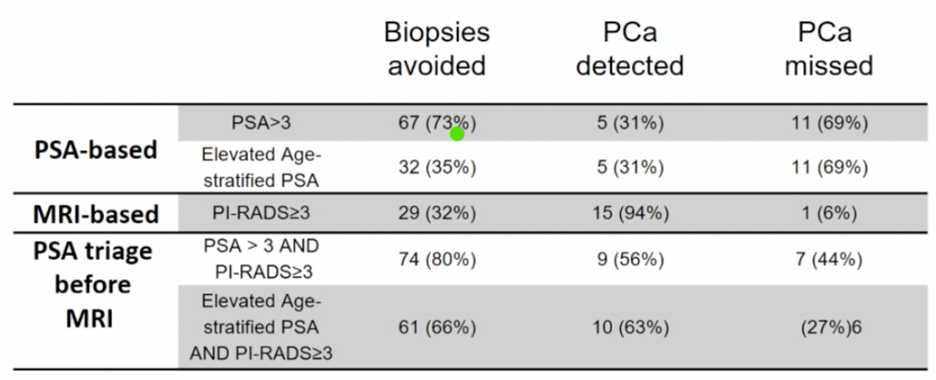(UroToday.com) At the European Society of Medical Oncology – 2020 Virtual Congress (ESMO), Dr. David Margel presented data regarding the first round of screening from an imaging-based prostate cancer screening program among BRCA mutation carriers. There are clear guidelines for screening female BRCA-carriers for breast and ovarian cancer, however male BRCA-carrier screening for prostate cancer has largely been unstandardized. The aim of this study was to test the prevalence of prostate cancer among BRCA-carriers in Israel and to examine screening-strategies, specifically the use of prostate-specific antigen (PSA) and mpMRI.
For this study, Dr. Margel and colleagues utilized a prospective screening study design, looking at men aged 40-70 years of age among those with BRCA1/2 germline-mutations. In the first round of screening, all subjects had a PSA and a multi-parametric MRI. PSA was age-stratified, as follows:
- ≥ 1ng/mL for 40-50 year-old men
- ≥ 2ng/mL for 50-60 year-old men
- ≥ 2.5 ng/mL for 60-70 year-old men
This study recruited 188 patients with the following breakdown of patients:

Roughly 60% of patients had either an abnormal age stratified PSA, an abnormal mpMRI or both. In total, 16 patients were diagnosed with prostate cancer (8.5%), including 44% of which were intermediate or high risk:

Interestingly, there was no difference between BRCA1 and BRCA2 carriers. Looking at their data compared to other screening strategies, Dr. Margel notes that MRI-based screening would have detected 15/16 of the prostate cancers, and would have avoided 32% of biopsies:

However, mpMRI comes at a cost; on further analysis, they were able to ascertain that age was the determining factor as to whether to first screen with PSA or mpMRI. In a decision curve analysis, it was fond that men under the age of 55 years old should be screened with an mpMRI, whereas men older than 55 years of age should be screened with a PSA.
Dr. Margel concluded his presentation with the following take-home messages:
- This was a contemporary screening strategy using both imaging and targeted biopsy
- There was a high-rate of cancer detection in this screening cohort at 8.5%
- 185delAG BRCA1 rates of detection were similar to BRCA2
- Carriers that are younger than 55 years of age should have a screening mpMRI, whereas older carriers should have a screening PSA to triage who should then have an mpMRI
- This paper was concomitantly published in the Annals of Oncology1
References:
1. Segal N, Ber Y, Benjaminov O, et al. Imaging-based prostate cancer screening among BRCA mutation carriers—results from the first round of screening. Ann Oncol 2020 Sept 18.
Presented by: David Margel, MD, Professor, Division of Urology, Rabin Medical Center, Israel
Written by: Zachary Klaassen, MD, MSc – Assistant Professor of Urology, Georgia Cancer Center, Augusta University/Medical College of Georgia, Twitter: @zklaassen_md at the European Society for Medical Oncology Virtual Congress, ESMO Virtual Congress 2020 #ESMO20, 18 Sept - 21 Sept 2020


